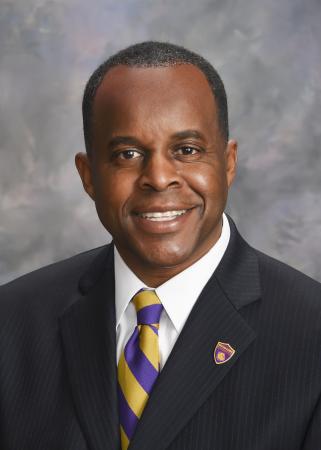University News
WIU President Calls for Increased Investment in Public Higher Education
November 16, 2017
Dear University Community,
After a budget impasse that persisted over two years, the state of Illinois passed a Fiscal Year 2018 budget on July 6, 2017. Prior to this most recent budget, significantly decreased state appropriated dollars were allocated to Illinois public higher education institutions for two consecutive years. This lack of adequate funding resulted in a ripple effect that continues to impact our regional public institutions.
According to the Center on Budget and Policy Priorities, the state of Illinois decreased higher education funding per student by 54 percent from 2008 to 2016 (a decrease of $3,479 per student). From 2015 to 2016 alone, Illinois support per higher education student dropped 37.1 percent.
Our leaders in this state must realize the value and necessity of regional public universities. We have done our part and have been frugal and careful stewards of the public funds that we receive. As a result of the impasse and dwindling state support, faculty and staff at Western have weathered significant salary decreases and dealt with the effects of other substantial cuts. We appreciate our employees' many sacrifices. We all have sacrificed a great deal, from forgoing salary increases to decreasing salaries via furloughs and voluntary pay reductions, to taking on additional responsibilities and workloads to counteract reductions in funding. We have eliminated programs and reduced services across the University. We have done our share to ensure that the limited resources on hand are protected. Without consistent support from our state, we continue to be forced to make decisions to conform to the lack of adequate and predictable funding.
Now is the time for a full state appropriated budget of $62 million for Western to support our students, classrooms, employees, programs, and infrastructure. This funding is critical to maintain the University, including funding for faculty and staff salaries and operations. We must remain competitive in our efforts to recruit and retain world-class faculty and staff, as well as outstanding students. If we want our students, faculty and staff to remain in the state, and if we want to provide exemplary social and intellectual capital to rebuild Illinois' economy, the state must fund regional public higher education institutions, which provide outstanding educational opportunities and career preparation to students in our region, across the state, and throughout the world.
In addition to our state appropriated budget request, we are requesting full MAP funding of $11 million for our students, $2 million to support student financial aid, $7.5 million for salaries and operations, $4 million for critical deferred maintenance projects, and $357.6 million for capital development projects. These funds are critical in order for Western to remain competitive and to continue to provide optimal services to this region. We will also continue to advocate for the release of the previously approved funding to construct the Center for Performing Arts, for which we have already held two groundbreaking ceremonies.
We are doing our part in terms of raising private support and investments for the University, but we also need the state of Illinois to restore confidence in public higher education by investing in our institution. It is time for Illinois' leaders to demonstrate to the state, and the nation, that the State of Illinois is willing to invest in the next generation through public higher education. Illinois' students are this state's greatest assets and resources. We must invest in our state's future, and this begins with ensuring access to public higher education, which is a proven path to upward mobility and a prosperous state.
In sum, an increased investment in public higher education is not an option. It is an absolute imperative.
Sincerely,
Jack Thomas
President
Posted By: University Communications (U-Communications@wiu.edu)
Office of University Communications & Marketing


Connect with us: